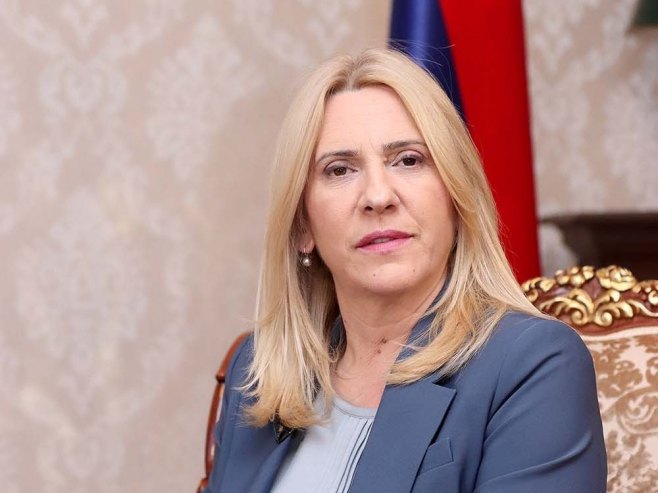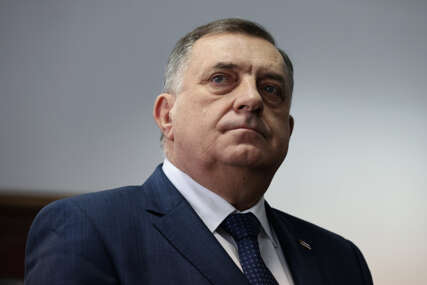Serb member of the Presidency of Bosnia and Herzegovina Željka Cvijanović stated that the agreement between Banjaluka and Washington envisions stabilizing the situation in the country and returning Bosnia and Herzegovina to normal functioning.
Cvijanović emphasized the importance of maintaining a serious dialogue with the U.S. administration, noting that it would be best if all relevant actors worked together, although that does not depend solely on her.
“Those who hold responsibilities in specific areas should do everything possible to improve the situation,” she said.
She added that during meetings with U.S. officials, she had the opportunity to hear that the economic dimension is one of their key priorities, highlighting that this opens the door for regional economic cooperation and strengthens political ties.
“I fully support that approach. This is an opportunity for all of us to finally see something that could be called American investment. So far, the engagement has been quite different,” Cvijanović told Istraga.ba.
According to her, there is no doubt that closer relations with the United States are needed, and that this is now much easier and more pleasant with the current administration, which focuses on economic priorities rather than internal interference or imposing solutions.
Cvijanović also said that she is always ready for constructive dialogue.
“I’m always a partner in any conversation that leads to positive outcomes for everyone — I’d travel to the end of the world for that,” she said.
She described the new U.S. administration as highly credible, adding that there has never been any talk of ‘betrayal by Milorad Dodik,’ calling such claims nonsense.
Cvijanović underlined that the current objective is stabilization and de-escalation, reiterating that she has consistently told friends, colleagues, and partners — both in Sarajevo and elsewhere — that she is ready to work on building peace, stability, and a well-ordered society.
She praised the United States for recognizing the need for a balanced approach toward all sides, recalling the time when sanctions were imposed on officials from Republika Srpska and the enthusiasm such actions provoked in Sarajevo.
“The media in Sarajevo celebrated those sanctions with unbelievable zeal. It was sickening to watch — and it still is,” Cvijanović said.
Regarding talks on de-escalation in Bosnia and Herzegovina with American partners, she noted that every political camp interprets the situation differently, and that her colleagues in Sarajevo constantly point the finger at Milorad Dodik and Republika Srpska.
“I maintain that they have usurped the powers of domestic institutions. My colleagues in Sarajevo are now calling for even greater involvement of the High Representatives. Clearly, we disagree — and doesn’t that itself show that we must de-escalate and find common ground?” Cvijanović asked.
She explained that certain laws adopted by the National Assembly of Republika Srpska were withdrawn for good reason, as their original purpose — to facilitate de-escalation — had been fulfilled. This, she said, demonstrated the defensive capability of Srpska’s institutions to resist pressure while seeking compromise solutions beneficial to all.
Cvijanović stressed that representatives of Republika Srpska have never sought solutions that benefit only one side, pointing out that Bosnia and Herzegovina is a complex state with equally complex relations.
She added that those advocating international interventionism today have no faith in the very country they claim to defend.
While daily political quarrels dominate in Bosnia and Herzegovina, Cvijanović pointed out that leaders of countries such as Kazakhstan, Uzbekistan, Azerbaijan, and Tajikistan are visiting the U.S. and signing agreements on mining and major investments in the IT and artificial intelligence sectors.
Commenting on the nomination of Fatih Kola for honorary consul in Panama — reportedly under investigation for alleged links to a drug cartel — Cvijanović said she was unaware of his background, explaining that the proposal came from a Bosnian association, but insisted that anyone under suspicion must be investigated.
“Rules for honorary consuls are flexible — I was the one who introduced them. Perhaps this case served a purpose, since it prompted us to clearly define those regulations,” Cvijanović concluded.
Source: RTRS









